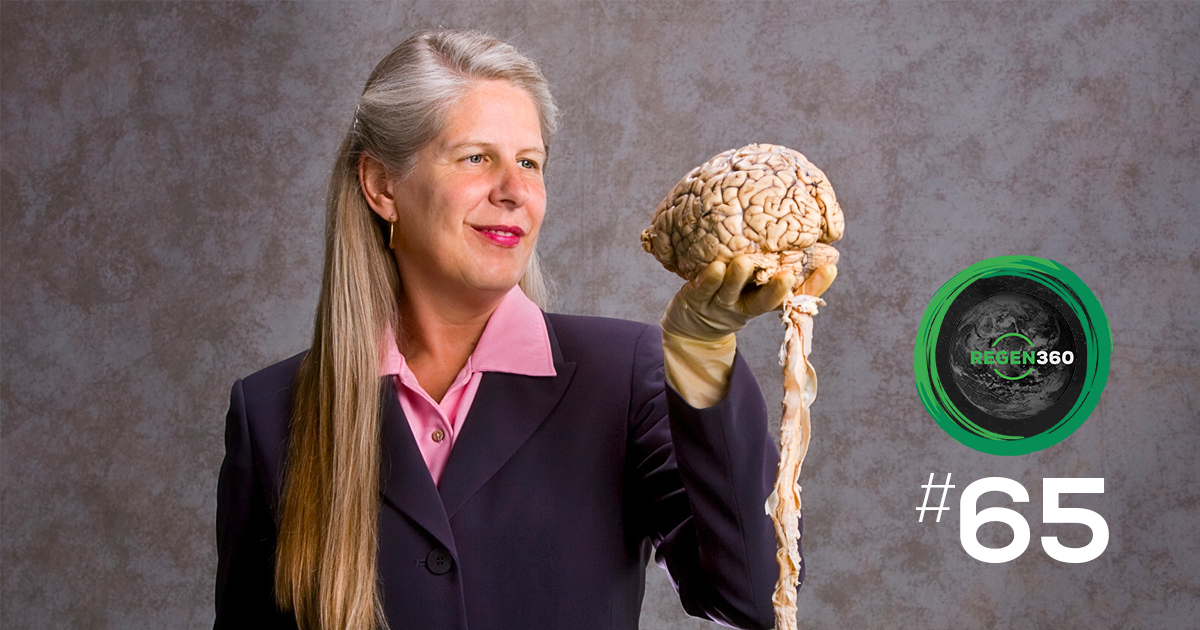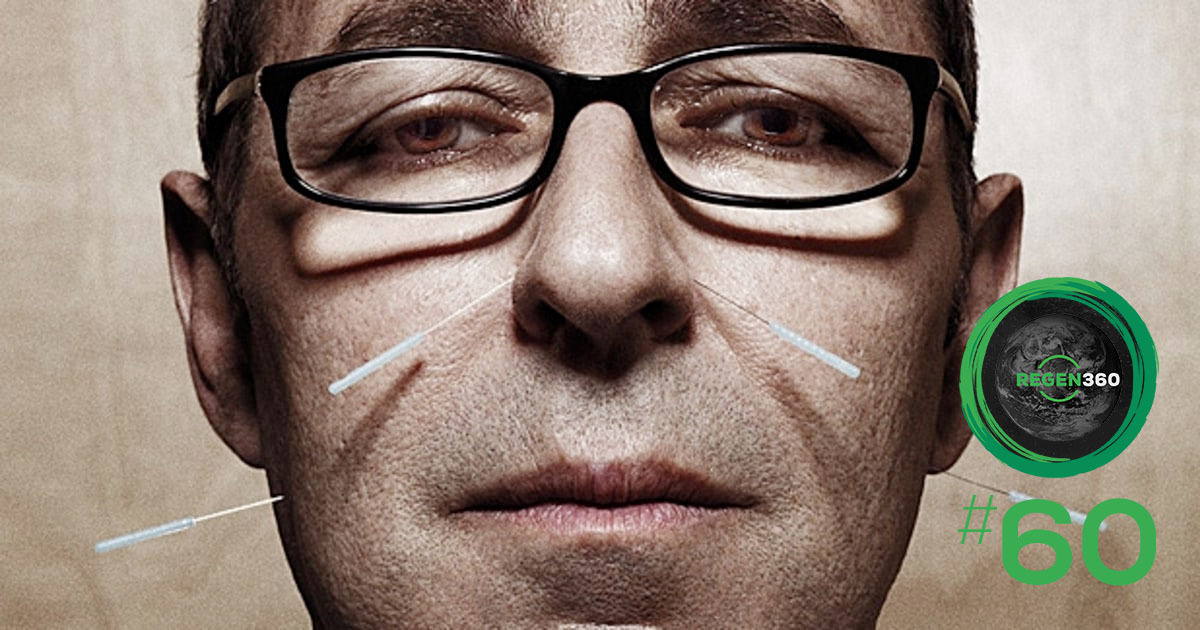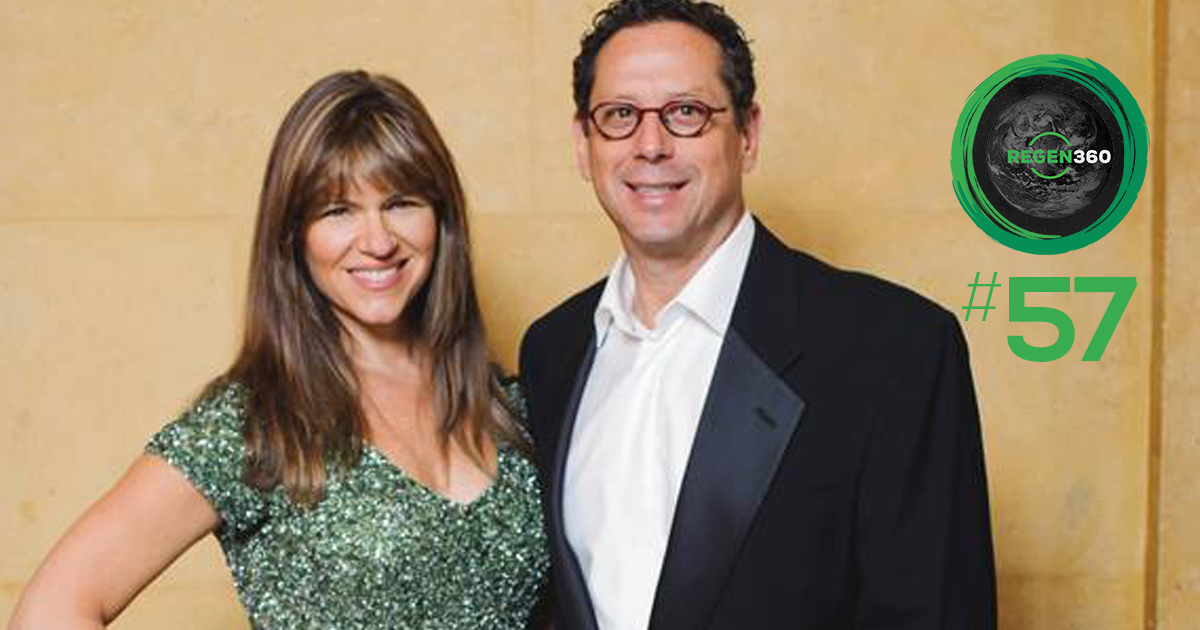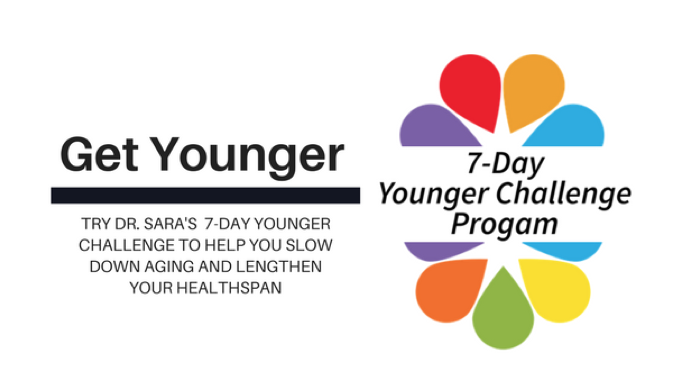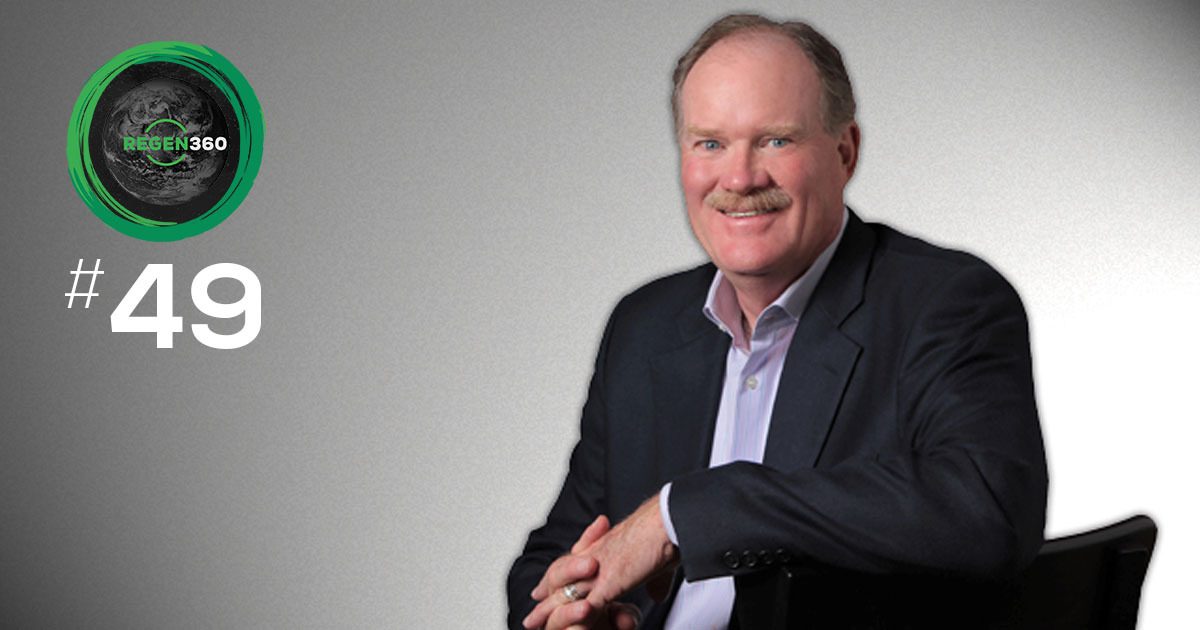Podcast: Play in new window | Download
Can you imagine having a massive stroke that impairs the left side of your brain and within four hours you can’t walk, talk, read, write or recall life?
And then you discover that by paralyzing your right hemisphere that you experience the greatest peace ever, a “metaphysical experience,” according to Jill Bolte Taylor, Ph.D. who wrote the fascinating book My Stroke of Insight: A Brain Scientist’s Personal Journey.
In my latest Regen360 podcast interview with Dr. Jill Bolte Taylor, we discuss her incredible experience and scientific analysis, after all, she’s a Harvard trained brain scientist and was voted one of Time magazine’s most influential people in the world in 2008.
It took Dr. Taylor eight years to fully recover, but she writes in her book that the massive stroke was both a “blessing” and a “revelation” as her injury uncovered feelings of well being and inner peace — creating a new, warmer split to her persona.
Most of us are left brain dominant – allowing us to not only be successful but also serving to deplete our souls. How many milestones can we pursue at the same time as we continuously cross off our to-do lists. I’m an engineer and can totally relate as my left brain drives me far away from creativity and the feeling of wholeness that I crave and relish.
How much is enough?
If it’s up to our left brains, our hunger and ego is almost endless. But our right brains desire something different: more inner peace and ease of life. Join me to learn more about our brains and how you can find greater insight into its ability to not only adapt and recover but to aid well being and harmony.
To fully utilizing our right brains without having a massive stroke!
David
